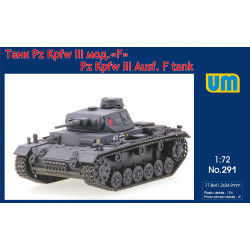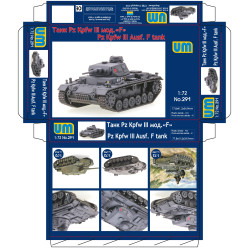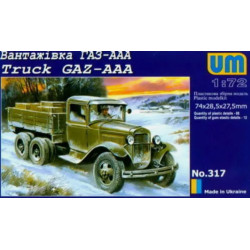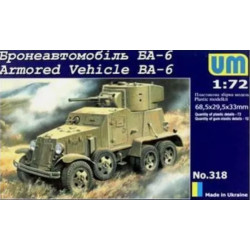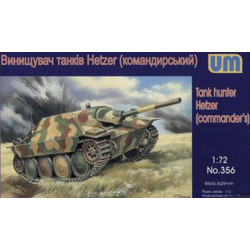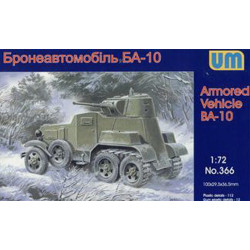Soviet ZSU-37 antiaircraft self-propelled plant (1944) WWII
1/72 WWII military VEHICLE scale plastic model kit
UniModels (UM) 309
Manufacturer: Universal Models / UniModels / UM (Ukraine)
Scale: 1/72
Material: Plastic
Condition: New in Box
Number of parts: 123parts + 19 photo-etched parts
ZSU-37 was a Soviet-made, light, self-propelled anti-aircraft gun (SPAAG), developed by the end of 1943 and produced at Works No. 40 in Mytishchi. It was the first Soviet series-produced tracked SPAAG. ZSU stands for Zenitnaya Samokhodnaya Ustanovka (Russian: Ð—ÐµÐ½Ð¸Ñ‚Ð½Ð°Ñ Ð¡Ð°Ð¼Ð¾Ñ…Ð¾Ð´Ð½Ð°Ñ Ð£Ñтановка), meaning "anti-aircraft self-propelled mount".Soviet engineers carried out some early experiments with tracked SPAAGs before and during World War II, including a modification of the T-70 light tank, resulting in the experimental T-90 SPAAG which was armed with two 12.7 mmDShKT heavy machine guns (the prototype was built in November 1942 byGAZ). The T-70 light tank would eventually be further developed into the SU-76 light self-propelled gun chassis, which in turn was to become the base for the ZSU-37 SPAAG. It was decided to use the chassis of the SU-76M in order to speed up and cheapen the production of the much needed tracked and armoured SPAAGs.The ZSU-37 was produced from March 1945 to 1948, and 75 vehicles were built in total (only a few vehicles were produced before the war ended, due to temporary manufacturing technology). As a result of its late production and the almost non-appearance of the few remaining Luftwaffe aircraft in the spring of 1945, the ZSU-37 saw no service in World War II. An experimental self-propelled anti-aircraft artillery battalion equipped with 12 ZSU-37 SPAAGs was formed by the end of 1945.The ZSU-37 was based on the SU-76M because it also shared its technical drawbacks and advantages, the most discussed of which was the open-top turret. To protect the crew from rain and snow the gun compartment could be covered with tarpaulin, however the gun could not be fully elevated when this was done. The open turret had advantages, such as high elevation angle, excellent visibility for the gunners and no need for ventilation. Light and manoeuvrable, the ZSU-37 was considered quite an effective SPAAG in the mid-1940s.However, it had insufficient off-road capabilities to accompany medium and heavy tanks in difficult terrain.
Ammunition consisted of 320 armour-piercing, fragmentation incendiary and fragmentation rounds (all with tracers). 130 rounds were in 5-round cartridges and 190 rounds were without cartridges. Armour-piercing composite rounds could be used against enemy heavy tanks. Muzzle velocity was between 890 and 920 m/s depending on projectile type, the armour-piercing shell weighed 0.785 kg, fragmentation shells weighed 0.732 kg. The autocannon could be depressed and elevated manually between -5° and +85°. Cyclic rate of fire was 120 to 130 rounds per minute while the practical rate of fire was about 50 to 60 rounds per minute. Maximum combat vertical fire was 2,500 m while the maximum vertical range was 6,500 m.
The vehicle could cross 0.67 m high vertical obstacles, 2 m wide trenches, ford 0.9 m deep water obstacles and climb 25° gradients. Transmission and undercarriage were identical to those of the SU-76M SPG. The engine was also the same but forced from 140 hp on SU-76M to 160 hp - a GAZ-203 which consisted of two tandem GAZ-202 6-cylinder row liquid-cooled gasoline engines, each producing 80 hp (63 kWt) at 3600 rpm.
| General Product Info | |
| Material | NOT SET |
| Scale | 1/72 |
| Type | AA System / Rocket launcher |
We have the lowest worldwide shipping. And it's totally simple.
EUROPE, USA, CANADA TURKEY, ISRAEL, EGYPT, UE CHINA, JAPAN, HK, S.KOREA | AU NZ MX South America, Asia | |
| Order weight up to 0.22kg or 0.48lb | US$ 8.90 | US$ 8.90 |
| Order weight up to 0.44kg or 0.97lb | US$ 13.95 | US$ 17.90 |
| Order weight over 0.44kg or 0.97lb | US$ 19.99 | US$ 29.99 |
| Order total over $150 | FREE | PROMO US$ 19.99 |
Shipping to some countries not qualifies for the free shipping option but costs not over $29.99 for any sized order. Sorry for that, your location is too far.
- Stock: 4
- Model: UM309
- Weight: 0.20lb
- DATE ADDED: 04/03/2014
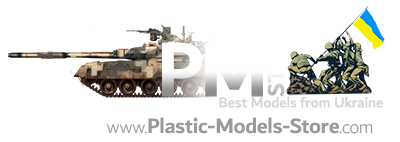
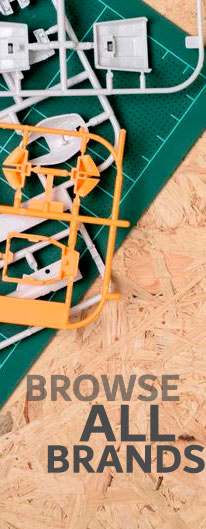
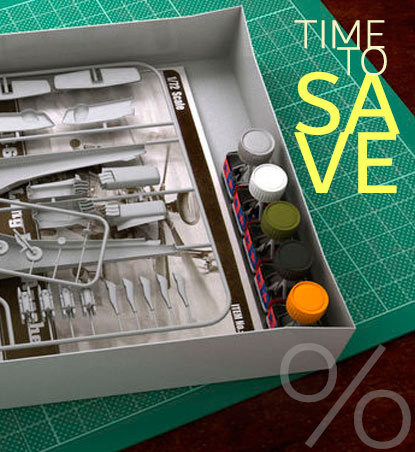




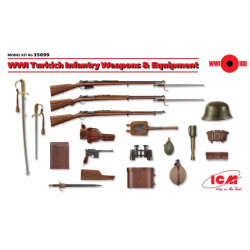
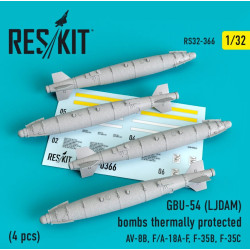
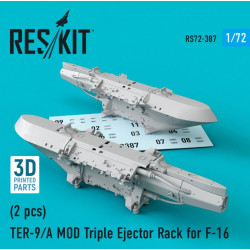
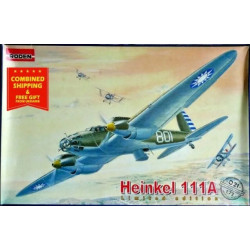
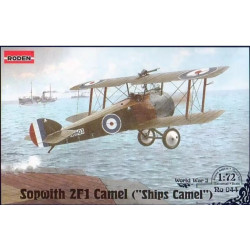

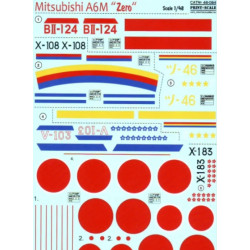
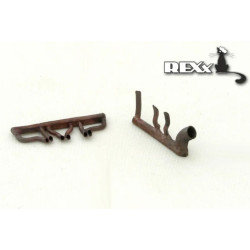

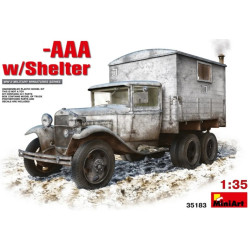
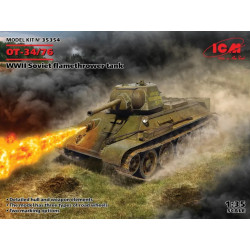
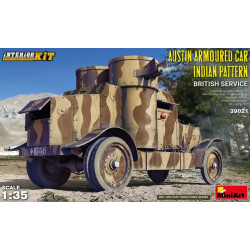



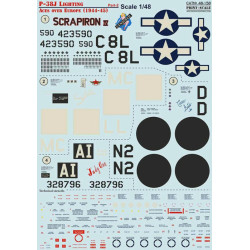





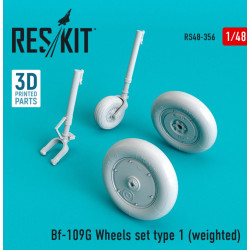
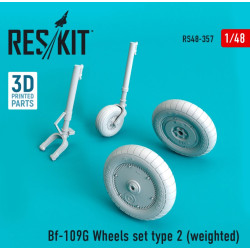
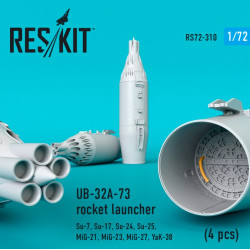
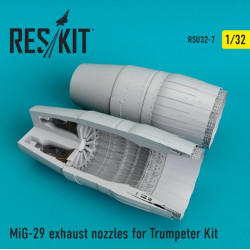


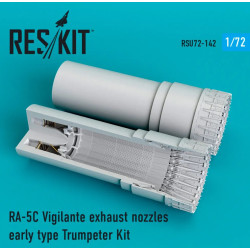
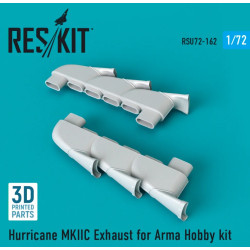
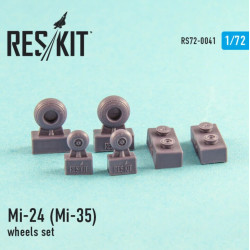
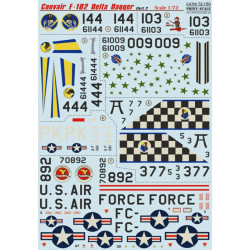
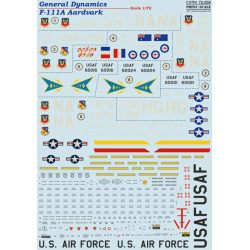

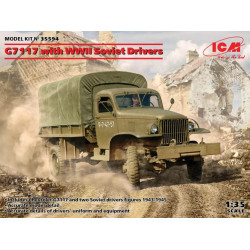

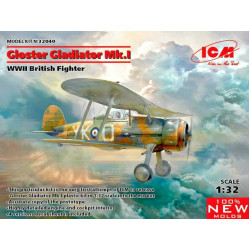
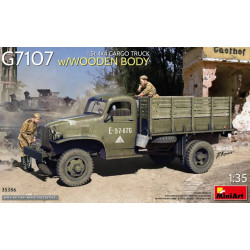

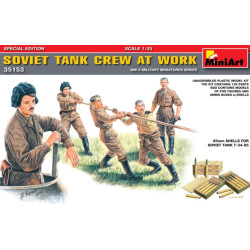
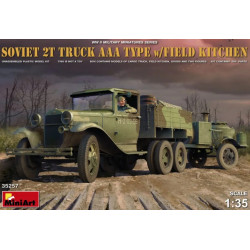
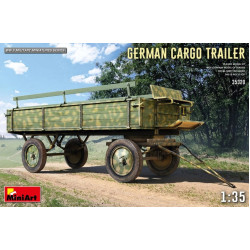
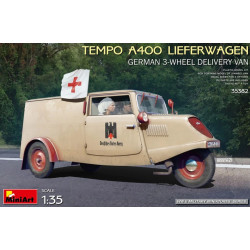
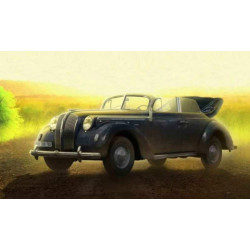

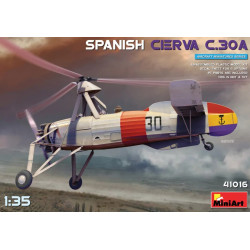

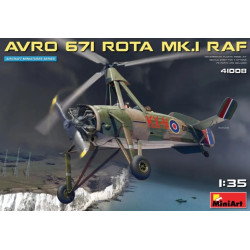
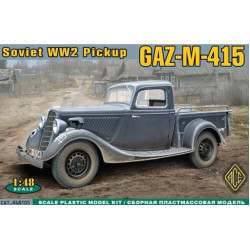

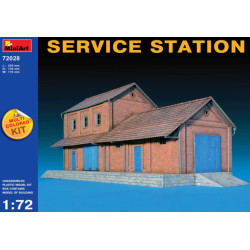
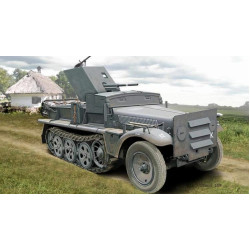
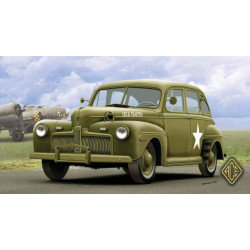
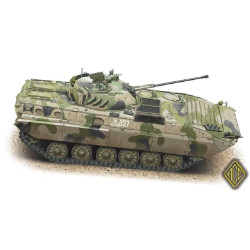
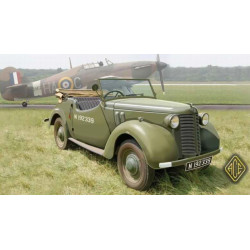










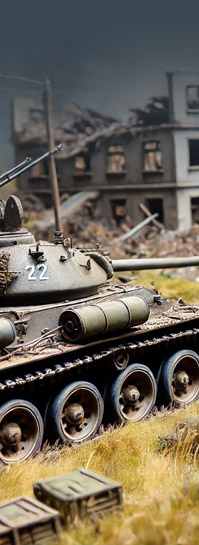
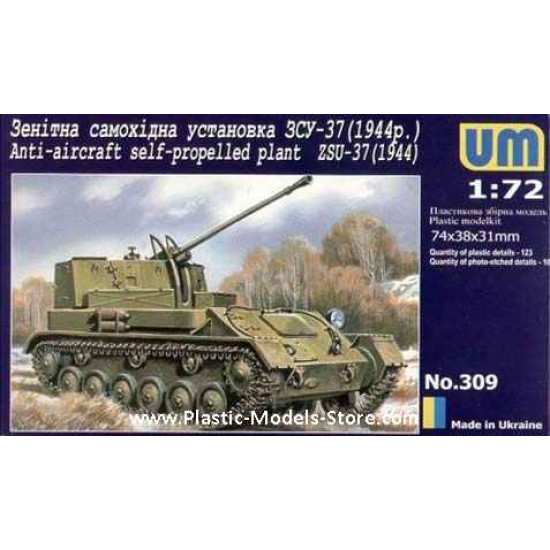
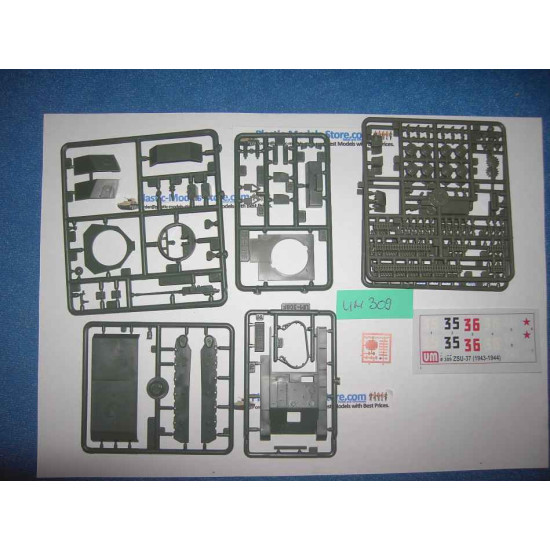
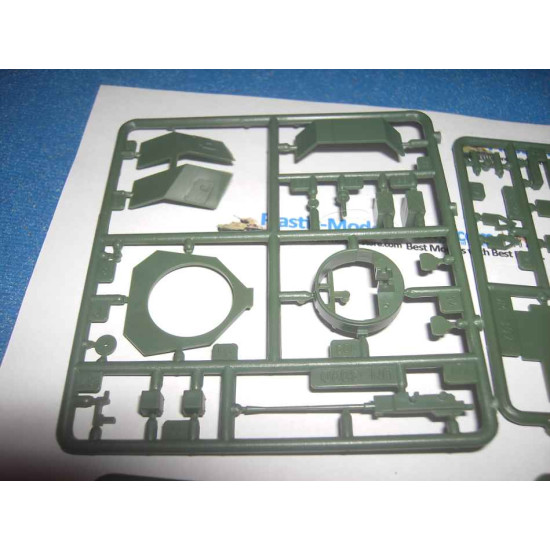
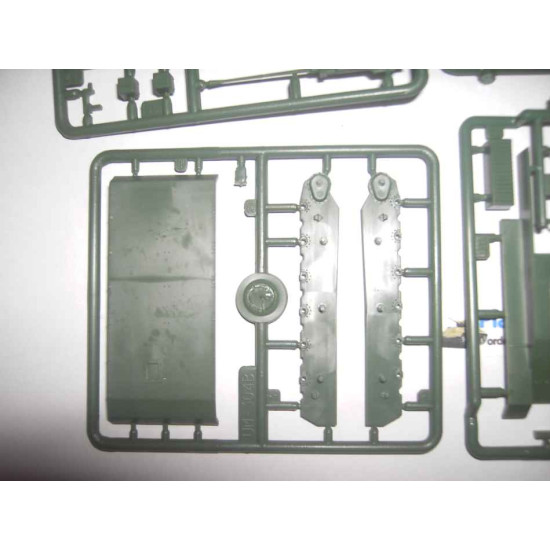
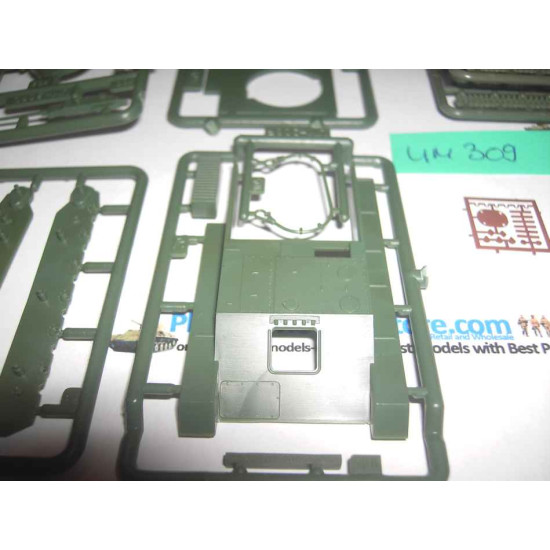
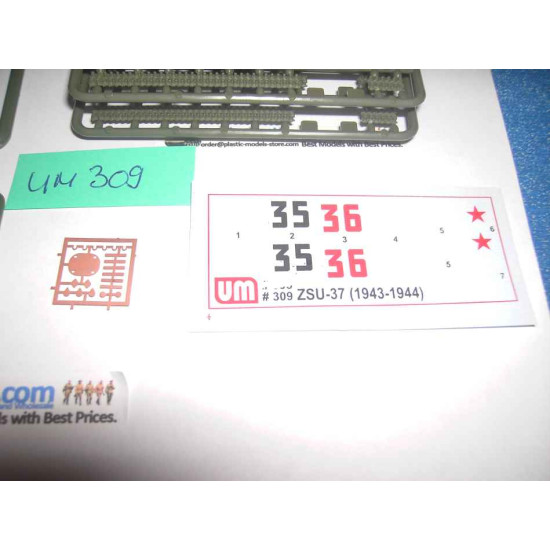
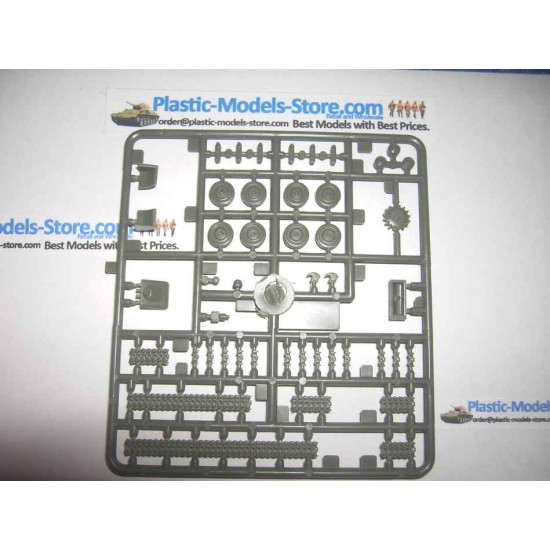








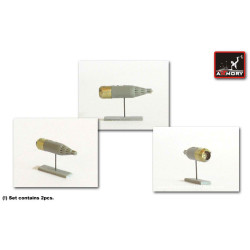
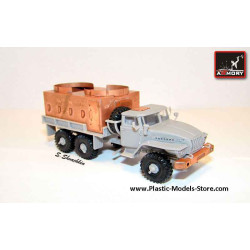
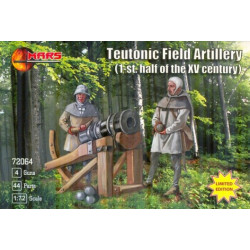
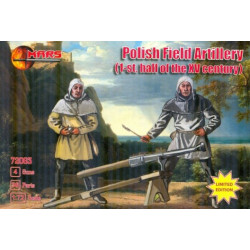
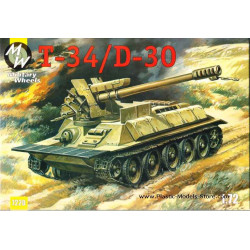
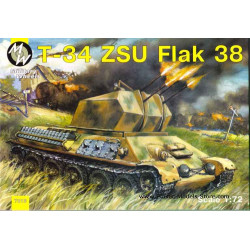
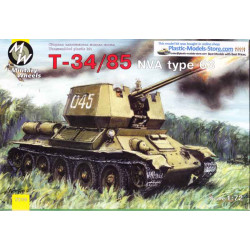
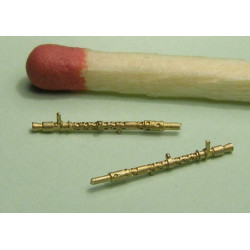
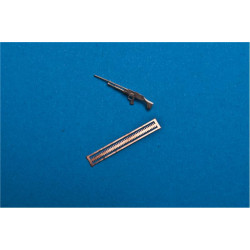
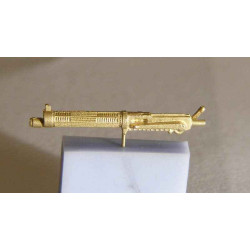
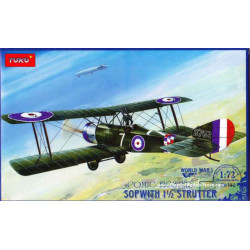
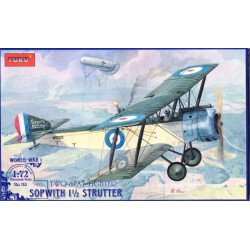
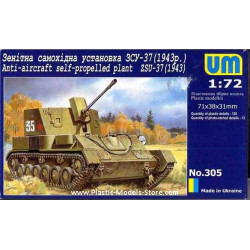
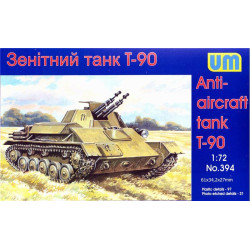
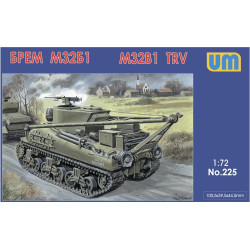
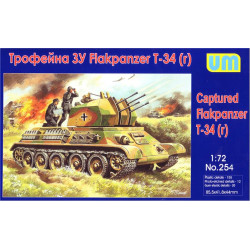
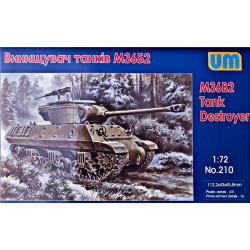
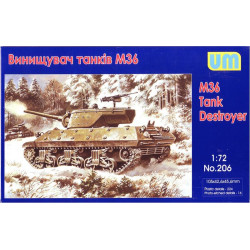
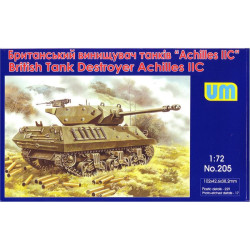
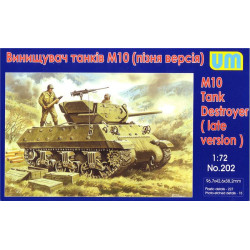
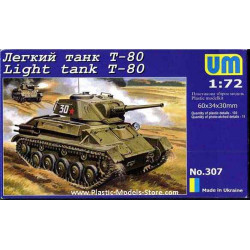
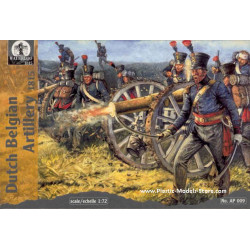
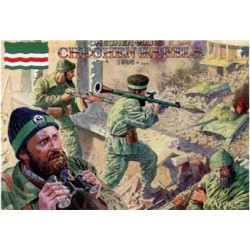
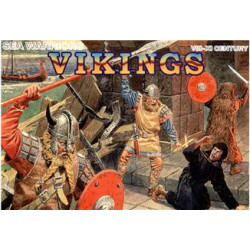
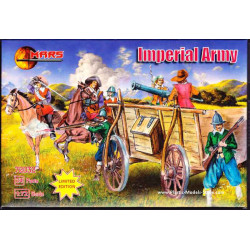
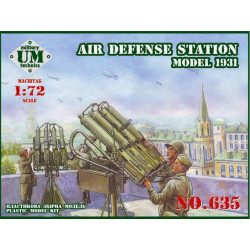
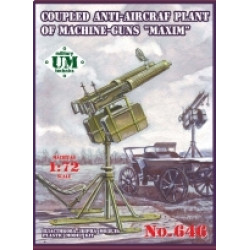
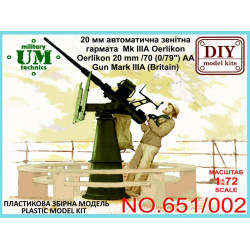
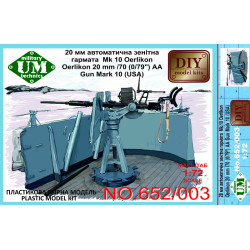
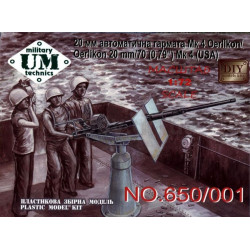
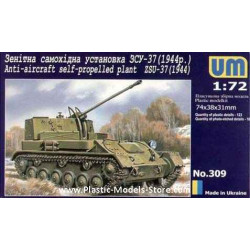
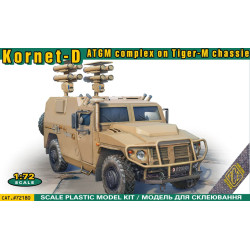

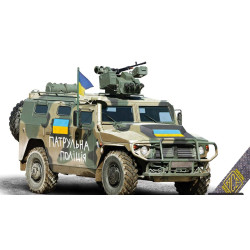
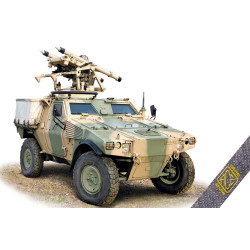
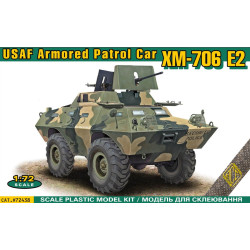

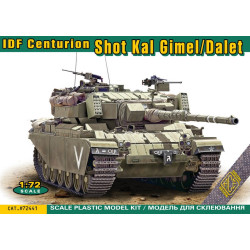
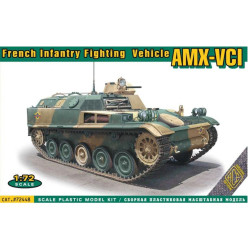
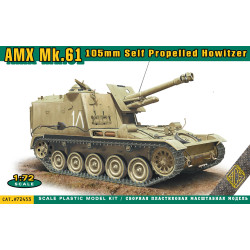
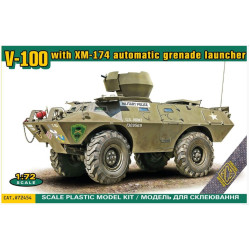

%201-250x250w.jpg)
%20scale%20plastic%20model%20kit%201-250x250w.jpg)
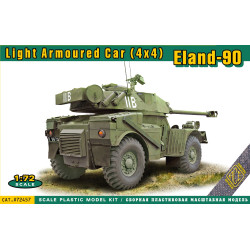
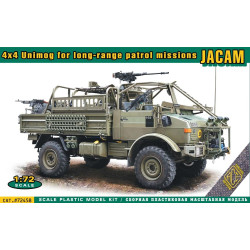
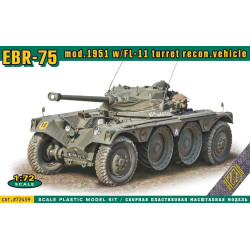
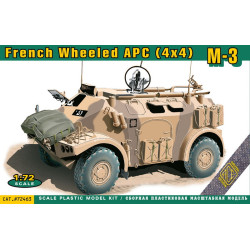
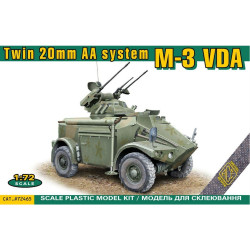
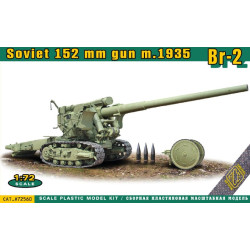
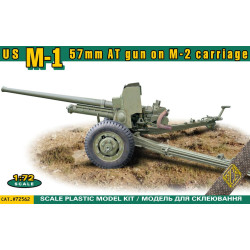
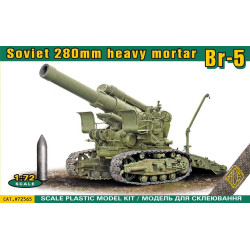
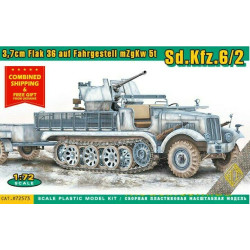
%20auf%20mZgkw%205t.1%20(1)-250x250w.jpg)
%20auf%20mZgkw%205t.1-250x250w.jpg)
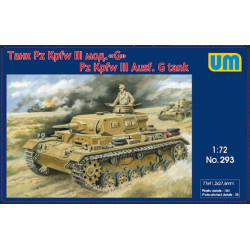

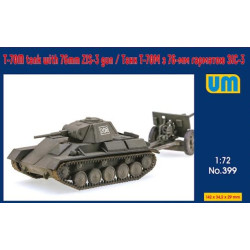
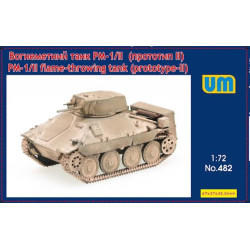

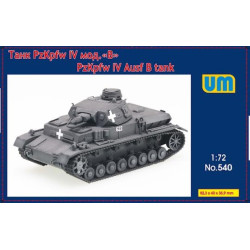

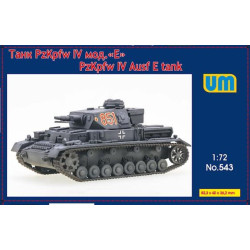
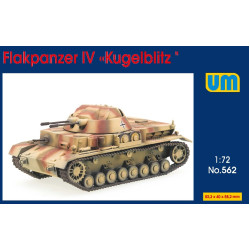
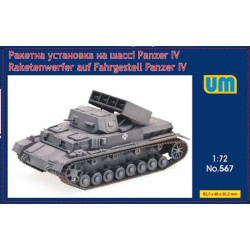

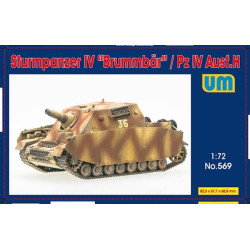
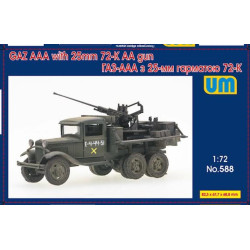
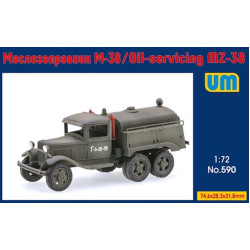
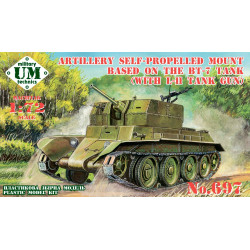
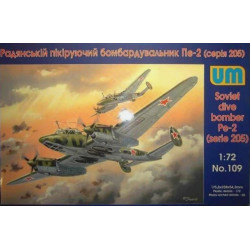

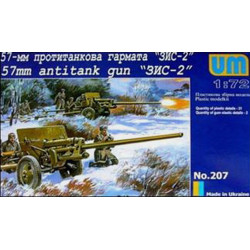
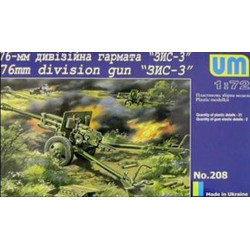
-250x250w.jpg)
